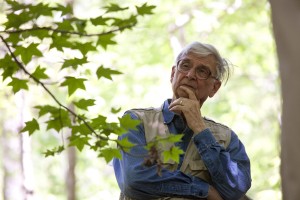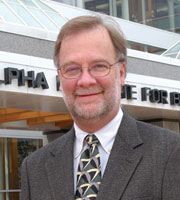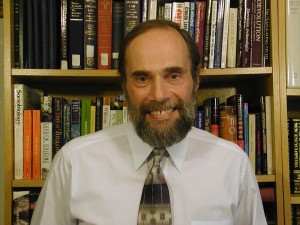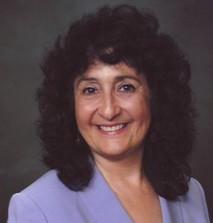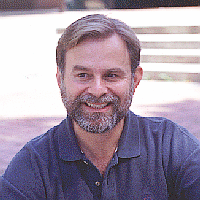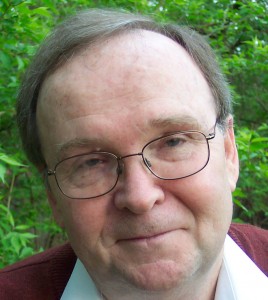2012-13 Series
|
Edward Osborne Wilson is a world leading biologist and internationally recognized as one of the planet’s most articulate authorities on the interrelatedness of knowledge disciplines and of life systems. He is acknowledged for two interdisciplinary scientific disciplines (island biogeography and sociobiology), three unifying concepts for science and the humanities jointly (biophilia, biodiversity studies, and consilience), and one technological advance in the study of global biodiversity (the Encyclopedia of Life). A native of Alabama, Wilson grew up in Mobile and received his bachelor’s and master’s degrees in biology from The University of Alabama (1949, 1950) and his doctoral degree in biology from Harvard University (1955). Wilson has received more than 100 awards for his research on ants and biodiversity and for his writings addressed to both scientific and non-scientific audiences. He has received two Pulitzer Prizes in general non-fiction for his books On Human Nature(1979) and The Ants (1991); the Crafoord Prize from the Royal Swedish Academy of Sciences; the International Prize of Biology of Japan; and the Nonino and Serono Prizes for Letters and Sciences of Italy. His work in the sciences, letters, the environment and conservation earned him prominence in the annals of the 21st Century. He was named one of the 25 most influential Americans by Time magazine and one of the world’s 100 leading intellectuals by Foreign Policy magazine. He is the author of 28 books including the recent novel, Anthill, set in the woods of South Alabama; The Social Conquest of Earth; and the soon-to-be-released profile of his boyhood hometown,Why We Are Here: Mobile and the Spirit of a Southern City.
|
|
John Hawks (University of Wisconsin-Madison) is a paleoanthropologist working to understand the genetic basis of human evolution. His research has uncovered the rapid genetic changes in humans during the past 10,000 years and the unique contribution of the genomes of Neandertals and other ancient people to our origins and evolution. He is recognized internationally as an advocate for open science, and his blog is one of the top internet resources on human evolution.
|
|
Richard Myers, Ph.D., received his B.S. from the University of Alabama in Tuscaloosa in 1977, his Ph.D. from the University of California at Berkeley and performed postdoctoral work at Harvard University. His first faculty position was at UC San Francisco in 1986, then Stanford University in 1993. At Stanford, Myers served as chair of the department of genetics and director of the Stanford Human Genome Center until he moved to HudsonAlpha in July 2008. Myers’ research program is focused on human genetics and genomics. Work in his laboratory has led to the identification of genes involved in inherited diseases, and his genome center contributed more than 10 percent of the data for the public Human Genome Project. His lab continues to use genomics tools and genetics to understand how genes interacting with the environment contribute to human diseases and other traits
|
|
Paul Bingham did his PhD at Harvard (1980; Biochemistry and Molecular Biology) and joined the faculty at Stony Brook University (Biochemistry and Cell Biology) in 1982 after 2 years at the National Institute of Environmental Health Sciences. His original research interests were in metazoan developmental molecular genetics, a field in which he made several important contributions, including the discovery of the P element transposon and elucidation of unexpected features of genetic regulation. He currently collaborates with Prof. Zuzana Zachar to run a cancer research lab at Stony Brook. However, Paul has also had a lifelong interest in the “human uniqueness problem.” After some early contributions in the 1990’s he initiated a decade-long collaboration with Joanne Souza which culminated in their development of the “social coercion hypothesis” for the origin of the human lineage (which he and Joanne will talk about). This approach gives us vast new capabilities, including the possibility of unifying the social sciences and humanities with the natural sciences for the first time.
|
Joanne Souza is a psychologist with research interests in the evolution of social fear and its effects on human health, learning, and welfare. She currently is a faculty member at Stony Brook University where she co-teaches a class on human evolution and social behavior with Paul Bingham while also working to improve student learning throughout the courses in the biological sciences. Joanne’s interest in this area brought her to academia after a successful career at AT&T as a communications consultant in health and education. Seeing the profound influence of social stress on her colleagues during the divesture of AT&T, she returned to academia seeking answers to why people reacted to social stress the way they did – often seemingly against their own interests. She began collaborating with Paul Bingham in what became a ten year research project in human evolution culminating in their book, Death from a Distance and the Birth of a Humane Universe. They have continued to present their work at conferences and seminars with talks at the Society of American Archeology and the EVos Consortium in New Paltz, to name a few. They continue to work with other researchers throughout the natural and social sciences as well as the humanities.
|
|
Bruce J. MacFadden is Curator and Professor of Vertebrate Paleontology at the Florida Museum of Natural History, University of Florida. On the UF faculty since 1977, he teaches in the biology and geology departments. He is the author of 165 peer-reviewed articles and the book entitled Fossil Horses (Cambridge 1992). With funding from the NSF PIRE program, his current research interests include collecting fossil mammals along the Panama Canal,. He also is interested in how evolution is communicated through museum exhibits. Bruce received his B.S. degree from Cornell University and his M.Phil. and Ph.D. degrees from Columbia University.
|
|
Joseph Carroll is Curators’ Professor of English at the University of Missouri, St. Louis. In addition to monographs on Matthew Arnold and Wallace Stevens, his books include Evolution and Literary Theory (1995),Literary Darwinism (2004), Reading Human Nature(2011), and (co-authored) Graphing Jane Austen (2012). Edited and co-edited works include an edition of Darwin’s Origin of Species (2003), Evolution, Literature, and Film: A Reader (2010),and the first two volumes ofThe Evolutionary Review (2010, 2011).
|

